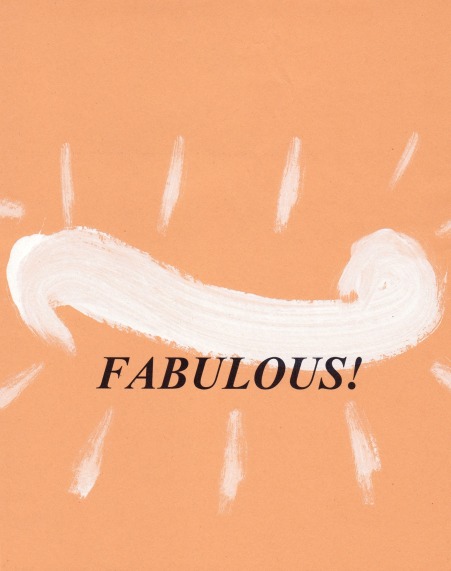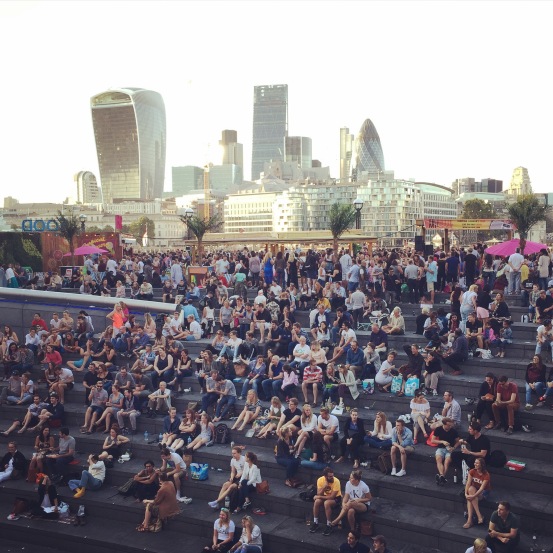
Fabulous! Motelism 2015 (to make up for not featuring as the PhD thesis cover)
I’ve been away for a while now, prioritising putting the finishing touches to my PhD, but today I bring good news… the thesis is submitted! It’s been a fascinating, mind-expanding and often confusing 4 year journey, but I’ve now contributed 99,000 words on my research project. That’s longer than some of the books on my nightstand (although possibly less suited to summer holiday reading)! Here is the finished product, with all three copies printed:

The PhD journey isn’t yet finished – I have a viva voce still to come in several months, which is my verbal defence of the work I have done, and I am crossing my fingers that the examiners find the work submitted impactful and relevant. I can’t call myself Dr yet, but one of the things I like about academia is that it is not afraid to really test those who are hoping to reach the post-doctoral stage, so I’m putting plans in place already to think about what I need to think about in preparation for the viva in October.
As for the PhD, since several of you have asked: I investigated the role of locative media – that is, GPS-enabled mobile phone dating apps including Grindr and Tinder – on queer urban geographies. The research was based across social sciences – a bit of human geography, some queer theory, and even some technology studies (and I still can’t make excel spreadsheets proficiently, so I can’t vouch entirely for the PhD process). I wanted to analyse how new forms of technology that prioritise physical space rather than virtual connection impact minority populations – in this scenario, non-heterosexual men living and working in London, but equally the findings can be extrapolated to think more widely about how youth seek information online, or how sexual or ethnic minorities consider themselves as part of a community (or not). How do locative media influence interactions with the city, and how do users ‘hybridise’ their digital and physical relationships? What does ‘hyperconnection’ mean, and what do the daily experiences of technology users seeking social or sexual encounter look like?
This research is relevant to academic thinking on how humans think about and adopt mobile technologies into their daily practices. Essentially, I argue that we now integrate this kind of pervasive technology into our lived experience (phenomenology) to an unprecedented extent, and this has good outcomes – for example journey planning on the tube or bus – and more ambiguous outcomes – for example an ‘always on’ culture that leaves people desperate for a digital detox on their holidays. This research also presents interesting impacts for policy initiatives, such as how we communicate information from government, or how people seek sexual health advice online.

When it comes to the queer theory part, the picture gets even more interesting. For one thing, these apps are bound up in the dissolving of once-popular LGBT venues in a city like London – lots has been written about this shift, but check out this Guardian article for a précis of the changes. However, I found that already-existing social and economic shifts probably play a larger role, certainly in large cities of the global north like London, Manchester and Madrid, to which apps contribute by dint of their popularity in the current dating environment. In the process, apps tend to make the home a concrete space for social or sexual connection, and for app users that has positive and negative repercussions.
The real highlight of this research for me was the volunteer time offered by 36 participants, whom I interviewed over one year. Their willingness to share their (often highly personal) stories with me really was the making of this research. I made sure my acknowledgements page really spoke to that, because I couldn’t have done this project without them. For anyone reading who was involved in the project, thank you again.
It was also really important to me to dedicate the PhD thesis to my friend Chris, who sadly died last year. Chris’s death prompted me to write this piece about the importance of expressing to our friends how much they mean to us, something that I think is vitally important. In the year since Chris’s death, I can testify that making sure your friends know how much they mean to you does nothing but good things. I recommend it to everyone. Show your friends they are loved! Chris is really missed by us all.

Finally, I’m sure you’re all dying to have a read of the thesis, right?(!) I can’t share the work until the viva is completed, because that dictates what the finished product looks like. From there I am planning to write several academic and mainstream articles from the thesis that I hope will be of interest. Until then, you can read my recently-published article in Gender, Place & Culture if you have a University log-in. If not, email me via the ‘contact‘ tab of this blog and I’ll send you a PDF.
Thanks again to everyone who helped me get the PhD this far over the past 4 years, from institutional level – especially my supervisors Dr Regan Koch and Dr Yasmin Ibrahim at Queen Mary, University of London – to the friends and family (with a special mention to someone who already has Dr in front of her name – Laura, who turns 30 today!)

Next stop, examination.